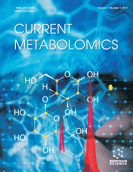Abstract
Background: To date the metabolic response to physical exercise in humans is a topic of great interest, in view of the importance of sports in modern society. Oxygen-independent glycogenolysis is satisfactorily reported in textbooks and in specialized reviews as a paradigm the metabolic response to intense muscle contraction, as it occurs in the 100 meter sprint.
Focus: Here we propose to carefully analyze the more complex oxygen-dependent glycogen and free fatty acids utilization in sustained contracting muscle, as it occurs in the marathon endurance race. The reactions of aerobic glycogenolysis, tricarboxyilic acid cycle, and free fatty acids catabolism, although well known long time ago, are presened in a systematic manner, to facilitate understanding of their central role in ATP generation. The metabolic response of glycogen to intense muscle exercise mainly consites in the exergonic oxygen-independent conversion of each glycosyl residue into two pyruvate molecules, with the concomitant production of ATP, the substrate of mysosin ATPase. The two pyruvate molecule enter the Tricaboxylic Acid Cycle, and generate additional ATP molecules. Particular emphasis is given to the metabolic response of fatty acids derived from lipid stores to long distance endurance race. Prospects: Memorizing a long series of reactions might appear a boring task. However, a long didactic experience convinced one of us (P. L. I.) that discussing through a guided approach the detailed metabolic networks responsible for the synthesis of ATP, the substrate of myosin ATPase, is as rewarding as memorizing the various physiological steps of muscle contraction. Finally, a deep knowledge of the metabolomics of oxygen-dependent and oxigen-independent muscle contration will greatly help students to get a clear idea of two important muscle physiological concepts: muscle capacity and muscle power.Keywords: ATP generation, endurance exercise, glycogen and free fatty acids catabolism, muscle power and capacity, shift from glycogen to triacylglycerol utilization: "hitting the wall".
Graphical Abstract
 11
11 4
4 1
1 1
1








.jpeg)








